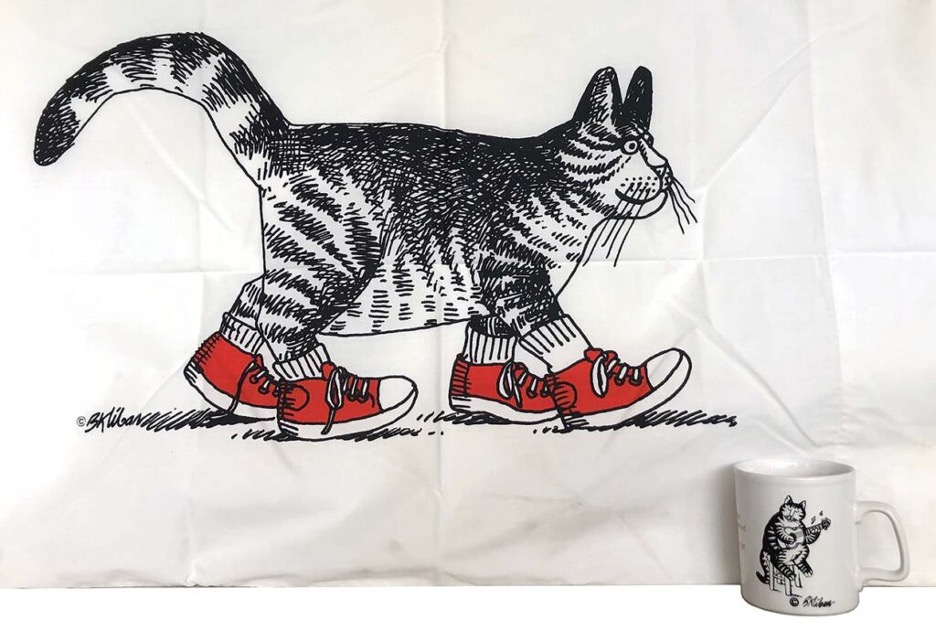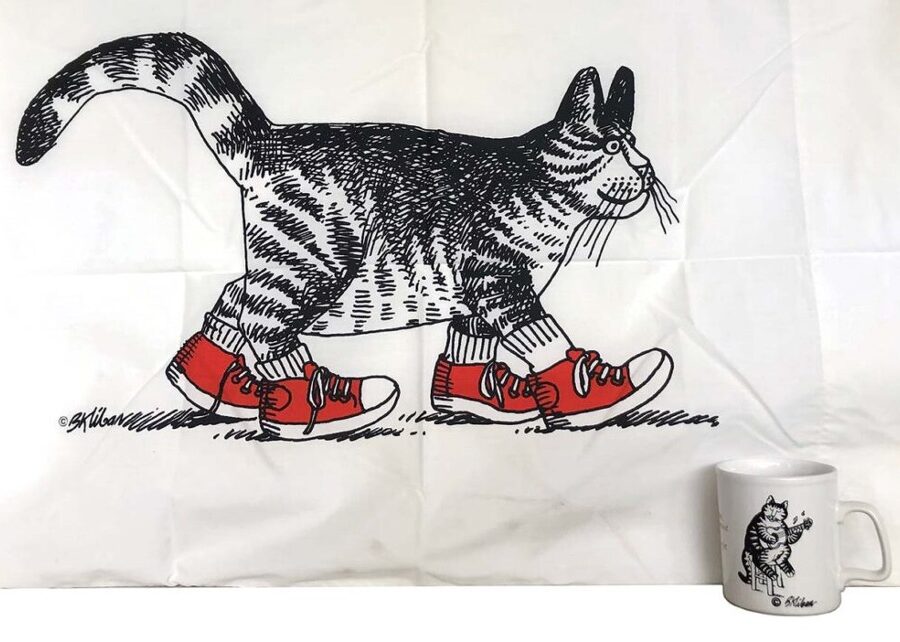From Portugal to Rockette to agent for nationally renowned cartoonists. Fund at The Trust supports a variety of charitable causes.
Toni Mendez Shapiro (1908-2003)

Anyone who has ever chuckled at cartoonist B. Kliban’s Cat, the hilarious striped feline that seemed to be on every mug, towel, and tote bag in the mid-1980s, can thank Toni Mendez. She was his licensing agent.
From 1946 to 2003, Toni represented numerous cartoonists, illustrators, and writers. As president of Toni Mendez, Inc., she wore many hats, including licensor, merchandiser, syndicated feature representative, and literary agent. Among her clients were Milton Caniff (Terry and the Pirates and Steve Canyon), Frank Willard (Moon Mullins), Ray Bailey (Tom Corbett, Space Cadet), and, of course, Kliban.
“It’s not just Americans who are wacka-wacka over Cat,“ she said in a 1981 interview with the Chicago Sun-Times. “It’s all over the world.” Toni said she realized Cat’s potential when the poster for Kliban’s original book kept getting stolen from bookstores. By 1990, Cat became a $50 million industry, according to The New York Times.
Toni was born in Portugal on November 2, 1908, and immigrated with her family to New York City. She spent a short time at Columbia University before joining the Rockettes at New York City Music Hall. When World War II broke out, she started choreographing USO shows to entertain the troops.
In July 1942, the American Theatre Wing Hospital Committee drafted her to seek out unusual talent to entertain injured soldiers. She began recruiting famous cartoonists to do “chalk talks,” drawing and telling jokes at hospitals at Fort Hamilton in Brooklyn and on Staten Island. As they say, one thing led to another.
During a mission to visit military bases in the Southeast, Mendez recalled, Clarence Russell (Pete the Tramp) suggested forming a cartoonists’ club to Rube Goldberg (Mike and Ike, Rube’s Ramblings). Shortly after the war, 26 male artists—the club was for “men only”—gathered at the Barberry Room on 52nd Street for the first National Cartoonists’ Society meeting. Mendez, who offered to serve as “trouble-shooter” for the club, became the agent for about 50 of them. In 1967, she was inducted as an honorary member.
She not only negotiated syndication contracts with newspapers and book publishers, but she also placed and managed all secondary rights—payments for use of copyrighted materials in endorsements, products, and ads—from home accessories to TV shows.
Toni’s first literary book deal was in 1956 for Bears in My Kitchen by Margaret Merrill and W. Jensen Bowers. Over the next 45 years, she represented hundreds of authors writing about everything from antiques and home improvement to history and politics.
Toni was married twice, and both of her husbands were in the publishing industry. In September 1958, she wed Harry S. Dale, a senior vice president of the Book-of-the-Month Club. He died four years later. Toni then married Samuel “Shap” Shapiro, vice president and circulation director of Cowles Communications, in April 1965. Shap died in 1990.
As a literary ambassador, Toni traveled to the Soviet Union in 1964 with the United Nations Women’s Committee for International Friendly Visits. She met with Pravda executives and the publisher of the official Soviet comics magazine, Krokodil (Crocodile), noted for its satire and humor directed against “capitalist warmongers.”
In 1972, the Newspaper Feature Council gave her their Jester Award for “dedication and tireless efforts in the promotion of newspaper comics.” Ohio State University presented her with its Distinguished Service Award in 1987. She also was honored by the U.S. Navy and the Anti-Defamation League.
Toni Mendez continued running her agency until 2003, the year she died at age 94.
In 2004, author Ted Rall concluded his acknowledgment for Wake Up, You’re Liberal with a toast to her: “During the last few years of her long, interesting, and important life, my agent, Toni Mendez encouraged this project as only she could. Toni, here’s to you: I hope I did well.”
The Toni Mendez funds in The New York Community Trust support keeping the Jewish faith alive, helping young people further their education and understanding of their fellow man, and introducing individuals and groups to music, dance, and theater.
